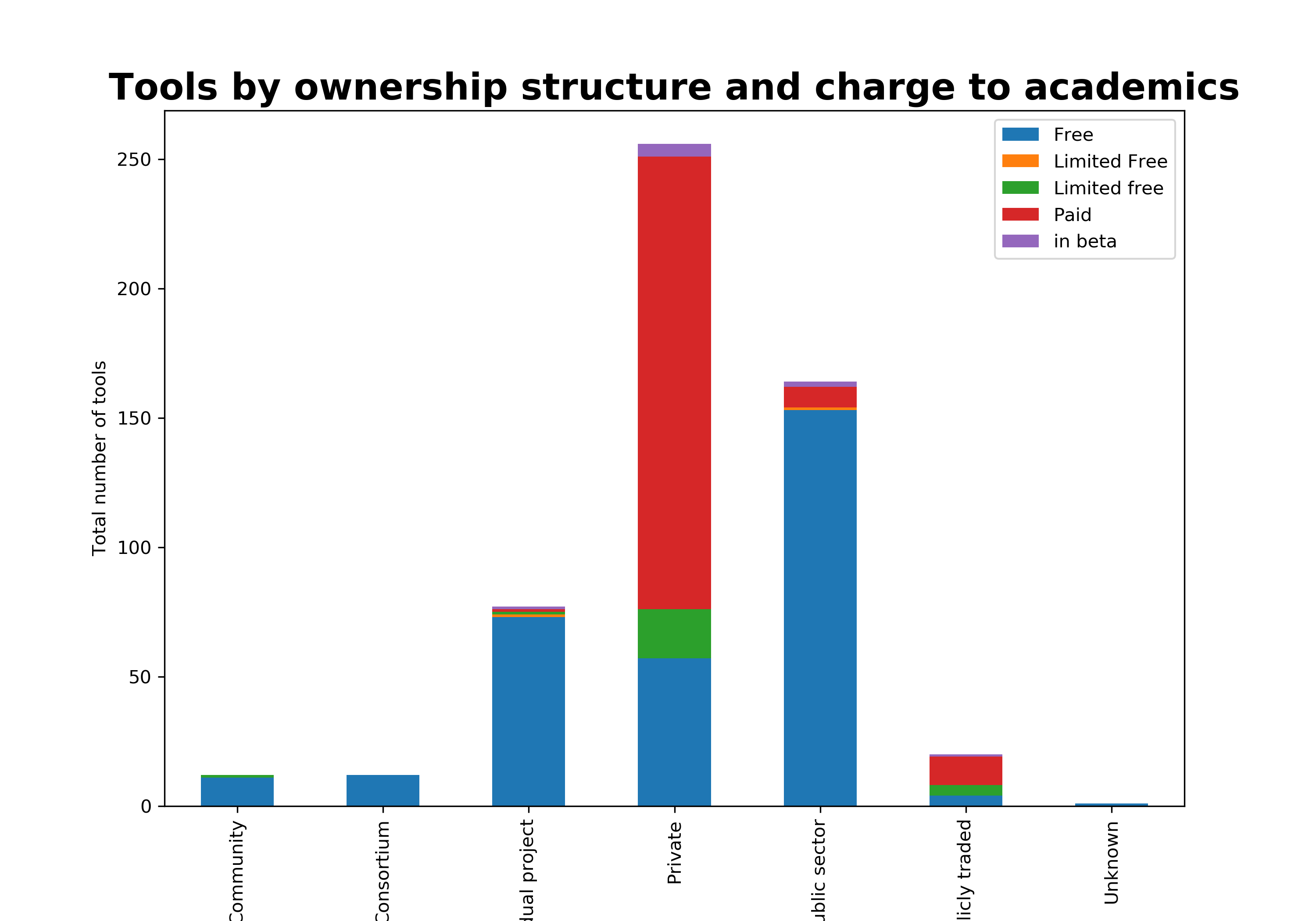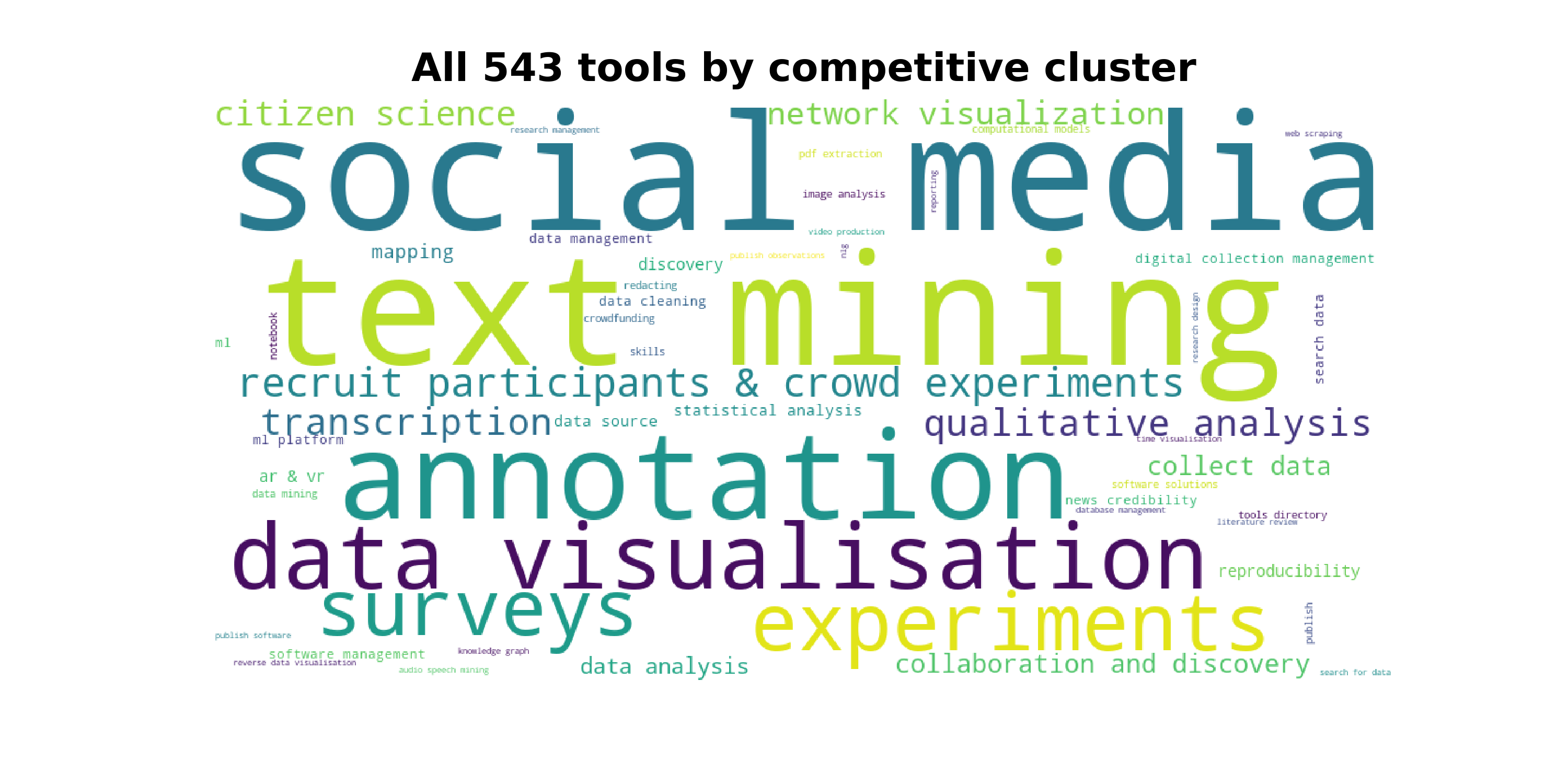Empowering research software
This blog was originally published in Social Science Space.
Excerpt
The paradox of research software lies in the tension between the promotion of software as a scholarly output and the reality of software as a product that needs to be sustained beyond its publication.
Using Research Software
The use and development of research software is integral to academic research in the social sciences and across all disciplines. In 2019, following the publication of our whitepaper on technologies for social sciences, the research methods innovation group at Sage ran a survey with the community and found that close to 85 percent of social scientists were using software for research, and at least 10 percent were developing their own software. This was not surprising, considering that after a brief dive into the area, we found more than 500 software tools and technologies used across the disciplines. (Sage is the parent of Social Science Space.)
Research software has a broad definition and includes almost any kind of code, scripts, algorithms, and computational workflows. It is an essential component of scientific endeavors across all domains. Currently, over 90 percent of researchers use software and approximately half develop research software. One might expect then that at least 90 percent of academic papers will have cited the software that was used to collect, analyze, or manage the data and outputs, but no. Most software is mentioned in papers but rarely cited, leaving research software engineers stuck in a loop. Research software is not recognized as a scholarly output, it is hard to get credit if most papers mention the software, but few cite it, and more difficult to prove its impact and receive further funding or support.
Huge efforts have been made since the development of the Software Citation Principles in 2016 to elevate software to a valuable digital object and to facilitate its reuse. Beyond an increase in the number of journals that adopted software citation policies, this work unearthed challenges around the long-term sustainability of research software.
The paradox of research software lies in the tension between the promotion of software as a scholarly output and the reality of software as a product that needs to be sustained beyond its publication. We view software development as a means to an end, with funding and publication being the primary goals. However, unlike traditional research outputs, software requires ongoing maintenance and development to remain useful. This presents a significant challenge for researchers and research software engineers who want to progress in their careers, while also promoting and sharing their software It requires significant time investment to create a community that can sustain its development and ensure its longevity.
Traditionally, funding has been available for the initial stages of software development, where engineers and researchers develop the prototype as an innovation. But software will go out of date if its makers have to move on to the next project. Over the last few years, several funders developed programs that focus on making software robust, scalable and reusable by bigger communities of researchers. At Sage, we have supported research software in the social sciences through our Sage Concept Grants program that has been running for five years and funded 22 software tools, prototypes and packages.
More about Sage Concept Grants
-
– Started in 2018 with 21 applicants, now over 100
– Two types of grants: Five seed grants of £2,000 for ideas, and £15,000 for teams that have a prototype and would like to scale it
– Applicants from over 40 countries, and unlike research funding organizations, Sage doesn’t have a limit on territory
– Just over 40 percent applications led by women or mixed teams
– Recurring themes: social media analysis, data collection and aggregation, image and video analysis, text mining, online experiments, qualitative data analysis, simulation and modelling
– Most common disciplines: Research Methods, Sociology and Social Studies, Behavioural Science, Education, Computational Social Science
– Learn more and apply
—
Research Software Funders Forum
This goal brought many of the funders together in a Research Software Funders Forum, an initiative coordinated by the Research Software Alliance (ReSA) and supported by Alfred P. Sloan Foundation, that Sage has also been involved with as the only academic publisher. Through this forum, funders share experiences and collaborate on best practices. Several working groups are looking into coordinating funding calls across disciplines or borders, the FAIR (Findable, Accessible, Interoperable and Reusable) principles for research software and how to improve evaluating software.
In addition to running the Funders’ Forum, ReSA has been playing a vital role in coordinating the stakeholders to develop best practices, maintain standards and guidelines and provide resources for the community to promote the value of research software. In November 2022, ReSA and the Netherlands eScience Centre organized an international funders workshop on the future of research software where funders joined forces to explore how to further incentivize software sustainability. During the workshop, the attendees drafted a preliminary set of guidelines for the sustainability of research software and the role of funders, now referred to as The Amsterdam Declaration of Funding Research Software Sustainability. The goal of the Amsterdam declaration is “to raise awareness of the role of funding practice in the sustainability of research software, and to improve that practice.” The organizers of the declaration are taking feedback on the declaration’s third draft through May 25.
While significant progress has been made in elevating software as a valuable digital object and promoting its citation with the help of organizations like ReSA, the Society of Research Software Engineers, and the Software Sustainability Institute, challenges around funding and sustainability still remain. The Research Software Funders Forum and initiatives like the Amsterdam Declaration are steps in the right direction, but there is still much work to be done to improve software evaluation, promote its reuse, and incentivize its sustainability. It is only through collaborative efforts and ongoing investment in research software that we can continue to make strides in scientific research and innovation.




